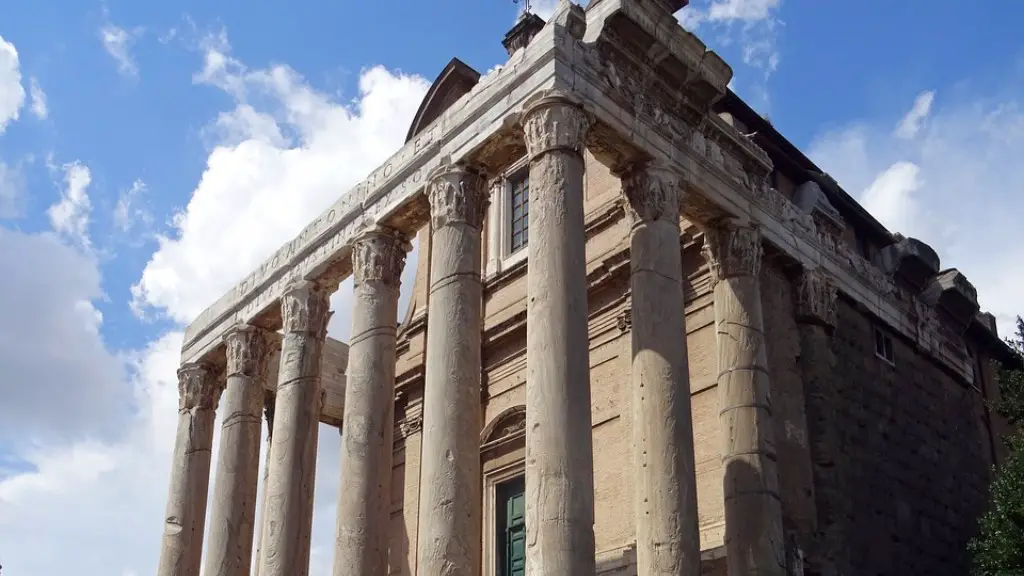Early Life and Family
Sulla, known as Lucius Cornelius Sulla Felix to the Roman world, was born around 138 BC in Rome. He belonged to a senatorial family, his father being a man of distinction. Sulla was trained in rhetoric and law and served in the army and rose to become the highest ranking general in the Roman Empire, a position he held for nine years. Sulla favoured the aristocratic classes and was vehemently opposed to the populism of any democratic forces.
Rise to Power
In 88 BC, Sulla declared himself dictator, a move that shocked the citizens of Rome. Sulla had risen to power on the back of his successful military campaigns and backed by the Senate, he used his position to pursue a policy of reforms. Sulla proposed a number of new constitutions, alongside an increased number of colonies, an end to the redistribution of public land and a reorientation of taxation models. He also implemented drastic changes to the Roman army, introducing a more professional approach to warfare.
Sulla’s Reforms
Sulla’s reforms were particularly effective in creating a more adaptive and efficient military for the Roman Empire. He also introduced a new taxation system and proposed reforms to provinces and colonies, which increased their revenues and contributed to the economic development of the Roman Empire. At the same time, Sulla reduced the number of Roman citizens and changed the composition of the Senate, allowing only people of the highest rank to be appointed.
Death and Legacy
Sulla died in 78 BC at the age of sixty-one, leaving a legacy of reform and a more powerful Roman Empire. His reforms had lasting effects and were adopted by succeeding Roman leaders. His military campaigns had raised the Roman Empire to greater heights and his reformed taxation systems had created an economic system that had stood the test of time.
Controversy
Sulla’s legacy is far from untarnished, and many Romans viewed him with suspicion due to his autocratic tendencies and his disregard for the rule of law. He was also fiercely opposed by many Roman citizens and his reforms viewed with distrust. However, many Romans viewed him as a strong leader who brought stability to the Roman Empire and this view persists today.
Study of Sulla
Sulla has become a subject of intense study by historians. His reforms, military campaigns and autocratic tendencies have all been analysed and discussed by academics. There have been two major schools of thought surrounding Sulla’s legacy, one which views him as an autocrat and one which views him as a stabilising figure who brought strength to the Roman Empire.
Impact on the Roman World
Sulla’s reforms and military campaigns had a lasting effect on the Roman world. His policy changes helped create a more efficient and adaptive military, increased revenue from colonies, substantially increased government revenue and solidified the ranks of senators. As a result of Sulla’s reforms, the Roman Empire was able to expand its frontiers and grow its influence.
The Critics of Sulla
While Sulla certainly had his supporters, he also had many critics. These ranged from everyday citizens to powerful politicians and military leaders. His disregard for the rule of law and his autocratic methods were widely criticised. Even today, Sulla’s legacy is viewed with distrust by many, a testament to the far-reaching impact of his actions.
The Memory of Sulla
In the centuries since Sulla’s death, his memory has been kept alive in various forms. From his monument in Rome to stories of his military prowess, Sulla’s legacy continues to linger. Many Roman citizens still view him as one of the most influential figures in Roman history and his reforms still shape the way the Roman world works today.
Position in History
Sulla is widely considered to be one of the most influential figures in Roman history, a position that is further bolstered by his lasting legacy. His reforms and military campaigns were influential in shaping the Roman Empire and were adopted and adapted by successive generations. As such, Sulla’s place in history is secure and he will continue to be an integral figure in Roman history for many years to come.
Impact of Sulla on Modern History
The impact of Sulla on modern history is wide-reaching. His reforms and military campaigns have been studied and emulated in various modern-day systems. From legal reforms to taxation systems, Sulla’s influence can still be felt in many aspects of modern life. His legacy has also been used as an example by many leaders, and his autocratic methods remain a source of controversy to this day.
Cultural Significance
Despite his controversial legacy, Sulla remains a figure of cultural reverence in Rome. He is often referred to as a symbol of strength and justice, and many monuments and public works are dedicated to his memory. His legacy also continues to be celebrated through stories and myths, ensuring that his place in the cultural consciousness of Rome will remain for many years to come.


